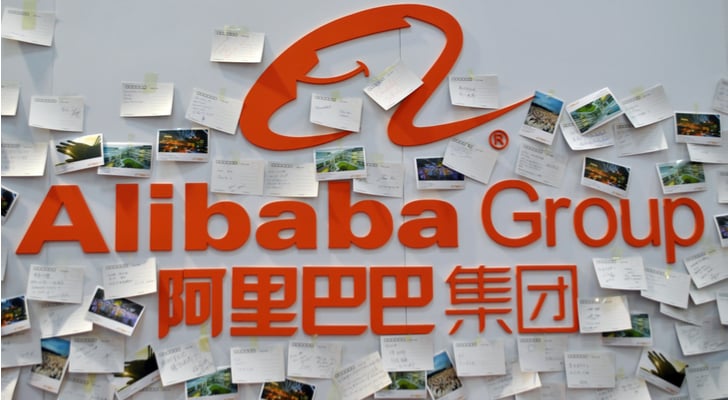I bought Alibaba (NASDAQ:BABA) stock two years ago as a proxy for Chinese technology. Since then, BABA stock is up over 70% — twice the rise in the average NASDAQ stock. This is true despite a precipitous fall, starting in June, that cut its price from $220 to $142 per share in late October. The shares opened for trade Dec. 3 at about $168.
But Alibaba is no longer the pure technology play it once was. Under incoming CEO Daniel Zhang, Alibaba has become a leader in what it calls “New Retail,” what U.S. companies called “omnichannel” a decade ago.
It has been spending billions on shopping malls, retailers, and most recently, a food delivery outfit called Ele.Me, on which it lavished $9.5 billion.
The New Alibaba
Zhang’s Alibaba is not founder Jack Ma’s Alibaba.
Ma’s BABA was the electronic glue connecting a host of small manufacturers to urban stores and exporters. Zhang’s BABA takes physical delivery of products and focuses on being the “single choice” for China’s urban consumer class.
The results are easy to see in the company’s financials. Gross profits for the December quarter of 2017 were over $1 billion higher than those for the September quarter of 2018, while sales were essentially flat.
The value of retail sales, in terms of market cap, is usually about 50 cents on the dollar, while the market tends to value tech sales at $5-10 of market cap. So why is Alibaba up in 2018?
Alibaba is building retailing turnover because of Ant Financial, which it has begun re-acquiring after spinning it out before it went public in 2011. Ant runs Alipay, Alibaba’s payments company, and recently put veteran BABA executives in charge with the aim of becoming more of a tech services outfit … a true fintech play.
Alibaba Stock vs. Amazon
While BABA stock is most frequently compared with Amazon (NASDAQ:AMZN), the company is a fraction of Amazon’s size but, in some ways, far ahead of it.
Alibaba is way ahead of Amazon in payments and banking services thanks to its stake in Ant Financial, and it is also far ahead of Amazon in terms of physical retail, dwarfing Amazon’s Whole Foods stores. Thanks to the law of large numbers (it’s harder to grow big ones than small ones) Alibaba’s cloud operations are also growing faster than Amazon’s, 90% year-over-year according to the September report.
This makes Alibaba even more essential, and dangerous, for Chinese producers than Amazon. Alibaba controls distribution channels, both online and offline, it is increasingly a force in retail and delivery, and it handles a lot of financing for both consumers and businesses.
China acts as a giant moat for its technology companies, much as the U.S. market acted as a moat for American companies during the 19th and most of the 20th century. Chinese companies generally compete with one another, entering the global market only when they have proven themselves.
This is a double-edged sword. Alibaba recently reduced its earnings estimates for the current quarter, citing weakness in Chinese consumer spending.
The Bottom Line on BABA Stock
Alibaba stock is more physical, and less virtual, than any true Chinese tech stock. It is, increasingly, a proxy for the health of the Chinese market itself, not just its online sector.
China’s economic growth rate is slowing, but it is not going backward. The economy is expected to grow 6.3% next year. China’s GDP was still just 62% that of the U.S. in 2017, while having more than four times the population of the U.S.
If you want in on that growth, BABA stock is the best place to get exposure to it. Alibaba is no longer just the “Amazon of China.” It is China Inc.
Dana Blankenhorn is a financial and technology journalist. He is the author of a new mystery thriller, The Reluctant Detective Finds Her Family, available now at the Amazon Kindle store. Write him at danablankenhorn@gmail.com or follow him on Twitter at @danablankenhorn. As of this writing, he owned shares in AMZN and BABA.

